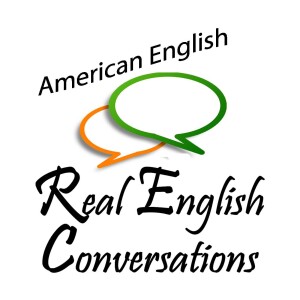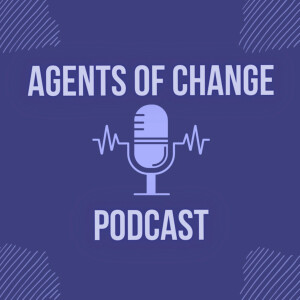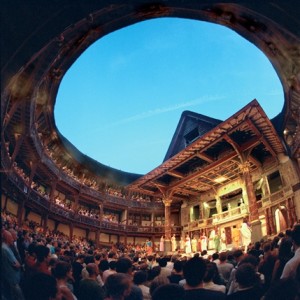We finally really begin Antony and Cleopatra, discussing Plutarch's interest in character, and Shakespeare's, and what makes a tragic character interesting since we know what the plot will be. Aristotle on pity and terror again: usually the protagonist or main is someone innocent or at worst someone like ourselves: not so in Macbeth. After which we start analyzing the opening scene, with comparisons to Lear and to Hamlet as well (on the quantification of love). Many corny jokes.
More Episodes
18. Peeping Tom, sort of but mainly Freud on instincts, pleasure, unpleasure, and scopophilia
 2014-04-28
2014-04-28
 1.3k
1.3k
23. Marvell's "Upon Appleton House" (briefly) and then "The Unfortunate Lover"
 2014-04-22
2014-04-22
 1.4k
1.4k
18. Vertigo and Freudian repetition
 2014-04-22
2014-04-22
 1.3k
1.3k
22. Marvell - The Garden
 2014-04-17
2014-04-17
 1.3k
1.3k
21. Marvell: Damon the Mower and The Garden
 2014-04-09
2014-04-09
 1.4k
1.4k
16. Other worlds and other minds in Source Code and Groundhog Day
 2014-04-05
2014-04-05
 1.3k
1.3k
20. Last class on Herbert: The Forerunners; The Pulley
 2014-04-05
2014-04-05
 1.3k
1.3k
19. George Herbert: Jordan (I), The Flower, Easter Wings, etc.
 2014-03-30
2014-03-30
 1.3k
1.3k
15. Source Code
 2014-03-30
2014-03-30
 1.3k
1.3k
14. Groundhog Day
 2014-03-28
2014-03-28
 1.4k
1.4k
18. First class on George Herbert
 2014-03-28
2014-03-28
 1.3k
1.3k
13. Skepticism and Zeno's paradoxes, again
 2014-03-26
2014-03-26
 1.3k
1.3k
17. 17th century poetry: a class on Robert Herrick
 2014-03-26
2014-03-26
 1.3k
1.3k
16. 17th c poetry, mainly Jonson's Cary-Morrison Ode
 2014-03-25
2014-03-25
 1.3k
1.3k
12. Film and Philosophy: Akerman's La Captive
 2014-03-13
2014-03-13
 1.3k
1.3k
11. Film and Philosophy
 2014-03-12
2014-03-12
 1.4k
1.4k
15, 17th Century Poetry: Ben Jonson, mainly "The Hourglass"
 2014-03-12
2014-03-12
 1.3k
1.3k
14. 17th C Poetry: Ben Jonson's songs
 2014-03-09
2014-03-09
 1.3k
1.3k
10. Film and Philosophy: Berkeley and Beckett's
 2014-03-05
2014-03-05
 1.3k
1.3k
13. 17th C Poetry: Trinity and then Ben Jonson
 2014-03-05
2014-03-05
 1.4k
1.4k
Create your
podcast in
minutes
- Full-featured podcast site
- Unlimited storage and bandwidth
- Comprehensive podcast stats
- Distribute to Apple Podcasts, Spotify, and more
- Make money with your podcast
It is Free
You may also like

Real English Conversations Podcast - Learn to Speak & Understand Real English with Confidence!


Triple R Teaching


高效磨耳朵 | 最好的英语听力资源


Angela Watson’s Truth for Teachers


Agents of Change Social Work Test Prep


- Privacy Policy
- Cookie Policy
- Terms of Use
- Consent Preferences
- Copyright © 2015-2024 Podbean.com



 iOS
iOS Android
Android